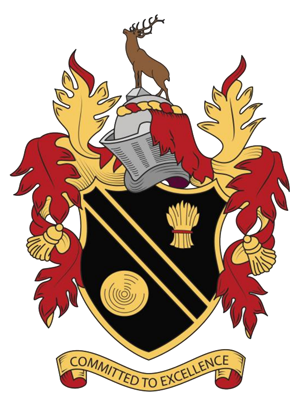SAIL – Student Agency in Learning
Shevington High School is a partner within the Whole Education Network of schools. One of the key projects we are involved in is the SAIL project in which secondary schools in the Whole Education Network have come together to design their own curricula which are child-centered and focused on ensuring all learners meet their full potential in life. Their inspiration comes from the Kunskapsskolan Education (KED) programme which was set up in Sweden over a decade ago and equips every young person with the tools and strategies they need to progress and be life-long learners. The project is providing opportunities for schools to collaborate globally as well as nationally and build a learning community among students as well as teachers.
This brochure covers some of this years highlights – CLICK HERE
The are several aspects to the project. Please find below a detailed overview of the features and benefits for our students.
Coaching
The key to personalised learning, where the teacher helps the student to set goals and develop successful learning strategies for all schoolwork.
Personal goals
What do you want to achieve in school? What do you need to learn? In the KED Program, all school work is driven by the student’s personal goals decided together with his or her personal coach and documented in writing.
All students use a log book on a daily basis to record their own personal learning goals.
This short video shows how this can be used each day.
Personal strategies
What will it take – from you, your family and your school – to reach your goals? In the KED Program, every student has a working plan, starting with short-term goals for the week to come, medium-term goals for the semester and long-term goals for the school year and beyond.
Teacher roles
In the KED Program, the teacher has four major roles: being a personal coach to support each student’s progress, a subject teacher who is an expert in a certain subject, a general teacher who provides support to all students in the school, and a team member in the local and global networks of teachers in the KED Network.
Last but not least, the professional development of teachers is a major focus of the KED Program.
Learning Portal
The KED Program provides all material for teaching and learning on a web-based portal. The Learning Portal contains the curricula, work paths, exercises, texts and other resources for all steps and theme courses. As a result, access to learning is not limited by school hours and school buildings, and we can ensure that students’ needs are met. The Portal provides the opportunity to find the right content and study schedule based on every student’s needs and abilities.
Steps and themes
Subjects are studied in steps or as part of a theme course.
Step subjects are usually languages and mathematics. These subjects are structured as a ladder. Each new step adds a level of difficulty and has clear goals and knowledge criteria. It allows students to study at their own pace and thoroughly learn a concept before they proceed to the next step.
In themes, several subjects are coordinated with each other to show students the context of a phenomenon, and give them the ability to see context and patterns. For example, a theme course called “A Star” covers history, religion, food technology, geography, art, drama, music and dance. In history, students study the qualities of people who earned star status during different historical periods. In religion, they learn about stars and symbols among believers. In food technology, students familiarize themselves with star chefs, and so on. In this way, subjects in school appear as they are connected in real life.
Time
Time is a resource for learning – perhaps the most limited resource. In the KED Program, we make sure that the use of time is tuned to the student’s individual learning profile, without being restricted by the traditional collective timetable.
Space
The environment in which students learn is key to the Kunskapsskolan model of education. The purpose of architecture is to create the optimal environment for learning, through purpose-designed and multi-functional facilities for lectures, group sessions and individual studies.
Technology
The use of top-level information and communication technology supports our capacity to personalize teaching and learning in the KED Program.
Steering and performance management
Schools in the KED Program aim for outstanding academic performance, coupled with the highest levels of teacher, student and parent satisfaction, along with solid finances.
Leadership and Organization
Strong local leadership is further strengthened by our global system for collaboration and exchange of best practice.
Teacher Program
KED schools promote continuous professional development to secure the highest level of teacher quality and satisfaction.

